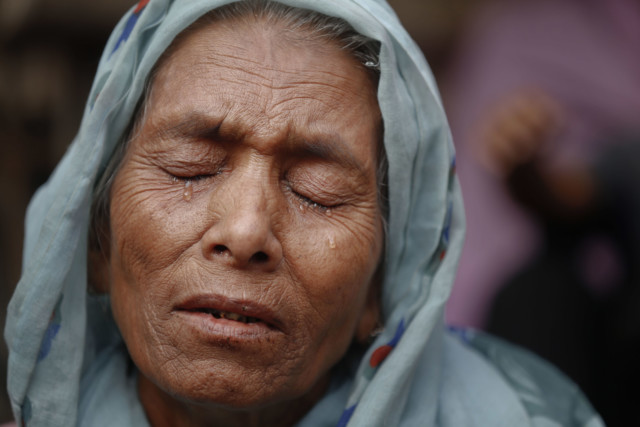Myanmar’s Muslim Rohingya minority face discrimination and violence from the Buddhist majority in the Southeast Asian country. Their plight generally goes unnoticed by the world at large, even though some rights activists say their persecution amounts to ethnic cleansing.
Myanmar’s Rohingya: A stateless people
Here are several things to know about the group:
“The most friendless people in the world
Although Rohingya — a Muslim ethnic minority of about 1 million among Myanmar’s predominantly Buddhist 52 million people — have lived in Myanmar for generations, most people in the country view them as foreign intruders from neighboring Bangladesh. Bangladesh, which hosts many Rohingya refugees, also refuses to recognize them as citizens. “The Rohingya are probably the most friendless people in the world. They just have no one advocating for them at all,” Kitty McKinsey, a spokeswoman for the U.N. High Commissioner for Refugees, said in 2009.
Border attacks let to the outbreak of violence
Almost all Rohingya live in western Myanmar’s Rakhine state, where the military has stepped up operations since November, when nine police officers were killed in attacks on posts along the border with Bangladesh. The identity of the perpetrators remains unclear. Rohingya villagers armed with homemade weapons resisted troops and an unknown number of villagers died, along with a handful of soldiers and officials. Rohingya solidarity groups say several hundred civilians have been killed since October. The New York-based group Human Rights Watch says satellite imagery shows 1,250 houses and other structures have been burned down. In 2012, violence between Rohingya and the Buddhist community killed hundreds and forced about 140,000 people — predominantly Rohingya — to flee their homes to camps for the internally displaced. About 100,000 remain in the squalid camps and dependent on charity.
Disappointment with Aung Saan Suu Kyi
There has been great disappointment that Nobel Peace laureate Aung San Suu Kyi, whose political party took power in Myanmar this year after decades of military rule, has failed to ease the plight of Rohingya despite her reputation as a fighter for human rights. Speaking out for Rohingya rights is an unpopular political position in Myanmar. However, Suu Kyi’s government in August appointed former U.N. Secretary-General Kofi Annan to head an advisory panel aimed at finding lasting solutions to the conflict in Rakhine state. He has visited Rakhine over the past few days and is scheduled to speak at a news conference Tuesday in Yangon, Myanmar’s biggest city. The U.N. special adviser on the prevention of genocide, Adama Dieng, last week expressed concern about reports of excessive use of force and other human rights violations against civilians, particularly Rohingya, including allegations of extrajudicial executions, torture, rape and the destruction of religious property.
Story by the Associated Press.
 CGTN America
CGTN America
 In this Dec.2, 2016 photo, Sufia Begum, a Rohingya who recently crossed over to Bangladesh, cries as she describes her experience at a unregistered refugee camp in Ukhiya, near Cox’s Bazar, a southern coastal district about, 296 kilometers (183 miles) south of Dhaka, Bangladesh. (AP Photo/A.M. Ahad)
In this Dec.2, 2016 photo, Sufia Begum, a Rohingya who recently crossed over to Bangladesh, cries as she describes her experience at a unregistered refugee camp in Ukhiya, near Cox’s Bazar, a southern coastal district about, 296 kilometers (183 miles) south of Dhaka, Bangladesh. (AP Photo/A.M. Ahad)
